- Home
- Enterprise
- Mobile
- 50 enterprise startups to bet your career on in 2016
50 enterprise startups to bet your career on in 2016
Docker: inventing a whole new industry

Cloudera: big data software that enterprises love

Company name: Cloudera
Headquarters: Palo Alto, California
Funding to date: $1.04 billion in 8 rounds
Cloudera is one of the largest companies in a particular big-data field called Hadoop, a popular, open-source and low-cost way of storing loads of data.
Its most recent funding came two years ago from Intel, which invested $740 million at nearly a $5 billion valuation.
But 2015 was still a growth year for Cloudera. While other unicorns valuations (and fates) seem to be wavering, Fidelity Investments recently increased its valuation on its investment in Cloudera.
Nutanix: Upending the way people buy data center hardware

Company name: Nutanix
Headquarters: San Jose, California
Funding to date: $312.2 million in 5 rounds
Nutanix, valued at $2 billion as of last year, helped create a new hardware market it calls "hyperconverged infrastructure."
It sells one giant hunk of data center hardware that combines compute, storage, and the what's known as "virtualization software" (which helps servers run more efficiently), all in one easy-to-use package.
At first, Nutanix was best pals with virtualization software titan VMware. But lately, Nutanix has been giving VMware a serious case of heartburn by increasingly going into direct competition.
That's bad news for VMware, but good news for anyone looking to bet their career on Nutanix.
Docusign: Replacing paper signatures
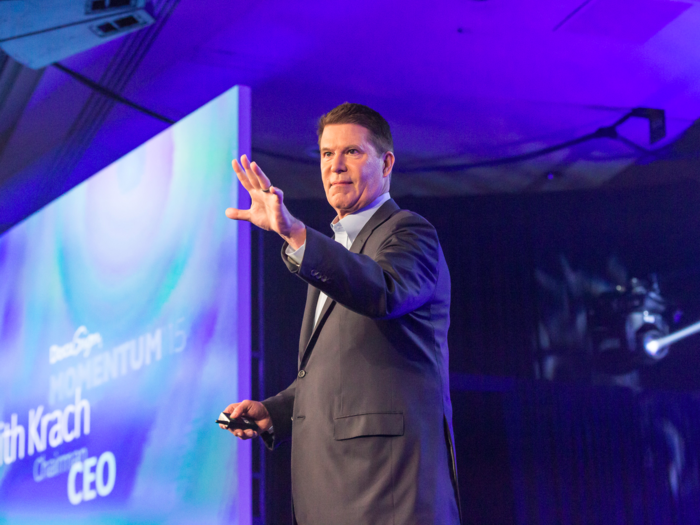
Company name: Docusign
Headquarters: San Francisco
Funding to date: $508.1 million in 14 rounds
Anytime your company’s name becomes a verb, it means you’ve made it. That’s the case with Docusign, whose name is almost used as a verb in the digital document area ("just Docusign it").
Docusign offers a simple and secure way to sign documents online, allowing businesses to approve transactions on the go. It's used across many different industries from real estate and auto insurance to technology and travel services.
Investors have been lining up to throw money at this company, investing almost $400 million in just the last two years.
Mirantis: Cloud operating system giant
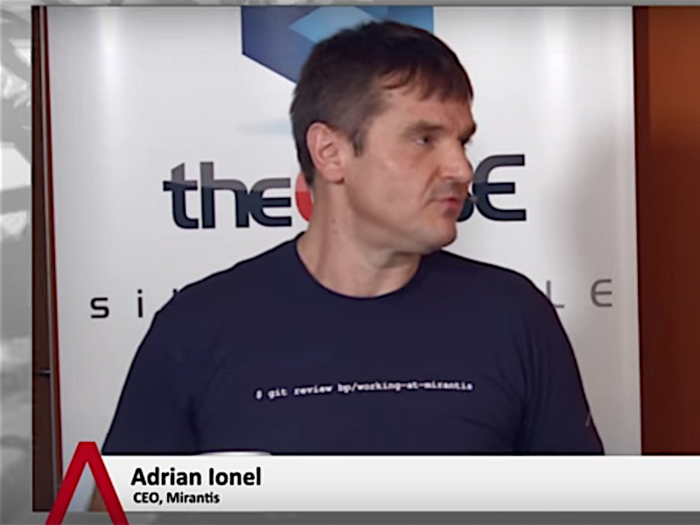
Company name: Mirantis
Headquarters: Mountain View, California
Funding to date: $220 million in 4 rounds
Mirantis offers software and services for a hot area of cloud computing called OpenStack, a free and open source cloud operating system that service providers and enterprises use.
OpenStack isn't easy to work with and skilled OpenStack developers are hard to find.
Mirantis has become the go-to place for OpenStack consultants, as well as offering its own commercially supported version of it. In 2015, it landed a nice partnership deal with Intel.
Zuora: billing customers in the cloud computing era

Company name: Zuora
Headquarters: Foster City, Calfornia
Funding to date: $242.5 million in 6 rounds
Zuora is a cloud service that specializes in subscription billing.
It was cofounded by its CEO Tien Tzuo, an early Salesforce employee who grew into a star executive before leaving to do this startup, with Salesforce CEO's Mark Benioff's blessing and seed money.
As the cloud computing market has gone gangbusters, so has Zuora, because cloud vendors invoice their customers on a subscription basis.
Earlier this year, Zuora raised a whopping $115 million round, reportedly joining the ranks of unicorn startups valued at over $1 billion (though Tzuo never released the actual valuation).
Tenable: breaking a record for funding

Company name: Tenable Network Security
Headquarters: Columbia, Maryland
Funding to date: $309.84 million in 3 rounds
Tenable broke a funding record for security companies earlier this year when it raised a $250 million round in November, bringing its total funding for the company, founded in 2002, to over $300 million.
Tenable offers something called "continuous threat monitoring" and says it has over 20,000 customers including Microsoft, IBM, Apple and Addidas.
It's CEO Ron Gula, started his career at the NSA before becoming a security guru for the private sector.
Okta: passwords and security in the cloud-computing era

Company name: Okta
Headquarters: San Francisco
Funding to date: $230 million in 8 rounds
Okta offers a cloud service that helps companies manage their employees' accounts to other cloud services.
It was founded by two former Salesforce execs, Todd McKinnon, and Frederic Kerrest. Okta was powerhouse VC Andreessen Horowitz's first cloud investment back in 2010 and it has been going gangbusters ever since, as companies flock to cloud computing services.
It just raised $75 million in the fall and joined the ranks of the unicorns, with a $1.2 billion valuation.
Slack: The fastest growing enterprise app ever

Company name: Slack
Headquarters: San Francisco
Funding to date: $339.95 million in 7 rounds
Slack took Silicon Valley’s startup scene by storm, reaching a whopping $2.8 billion valuation in less than two years.
Its work communication app isn’t just for messaging coworkers — it can do a lot of different things from getting automatic Twitter notifications to calling a Lyft cab or looking up restaurants nearby.
Slack now has 1.7 million daily active users, up from 1.1 million users earlier this year. It said it was adding $1 million worth of new contracts every 11 days back in February, so it’s likely those numbers are up as well.
GitHub: the must-use site for software developers
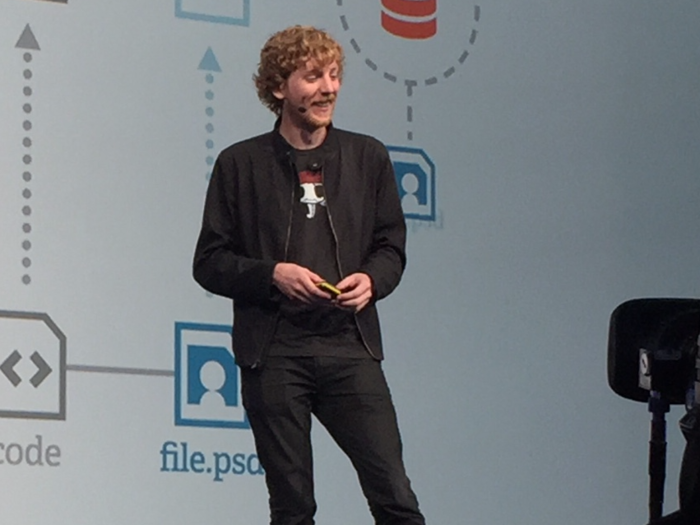
Company name: GitHub
Headquarters: San Francisco
Funding to date: $350 million in 2 rounds
If you are a software developer, you use Github.
It has not only become the most popular website for sharing software projects with other developers, it has also become a sort of LinkedIn for programmers, where they can show off their work, skills, interests and be scouted by companies who are hiring.
Github broke records when it raised its first $100 million in 2012, as the largest single VC investment ever. The VC was Andreessen Horowitz. In 2015, it raised another $250 million at a $2 billion valuation.
As a workplace, Github is known for its unusual culture, where people don't have strict titles and hierarchies, programmers can work on whatever they want, and its fancy, funky HQ office comes complete with a replica of the Oval Office.
Databricks: keepers of one of the most important projects of the decade

Company name: Databricks
Headquarters: San Francisco
Funding to date: $47 million in 2 rounds
A young technology project called Spark is "the most significant open source project of the next decade," IBM said when it dumped $300 million into the project last summer.
Spark is a way to sift through massive amounts of data really fast. It can be used with a popular way to store all that data, Hadoop, but increasingly, Spark is being used on its own as an alternative to Hadoop.
IBM didn't invent it. That honor belongs to the cofounder of Databricks, Matei Zaharia (CTO). He launched Databricks in 2013 with renowned UC Berkeley professor Ion Stoica (CEO) and others. Databricks provides commercial support for Spark.
Databricks promptly raised $47 million from Andreessen Horowitz and NEA.
CheckMarx: helping developers write safer, more secure apps

Company name: Checkmarx
Headquarters: Tel Aviv, New York
Funding to date: $92 million in 3 rounds
CheckMarx helps software programmers check their apps for security holes.
With the $84 million it raised in June, it's knocking on the door of Israel's small-but-growing unicorn club.
Checkmarx names Salesforce.com, SAP, Samsung, Coca Cola, the US Army as customers, has 130 employees in offices worldwide.
Illumio: protecting data even if a hacker breaks in

Company name: Illumio
Headquarters: Sunnyvale, California
Funding to date: $142.5 million in 3 rounds
Illumio was an almost instant enterprise startup darling in 2015, achieving $1 billion unicorn valuation earlier this year, a mere six months after coming out of "stealth mode."
That was only 27 months after it raised its first seed round.
Illumio is offers a security product that protects apps inside the data center even after a hacker breaks into the network.
It's backed by big names like Salesforce.com CEO Marc Benioff, Yahoo founder Jerry Yang, Box’s CEO Aaron Levie, Andreessen Horowitz's Ben Horowitz and others.
MuleSoft: disrupting the big guys

Company name: MuleSoft
Headquarters: San Francisco
Funding to date: $259 million in 7 rounds
You know how startups are always going on about how they are going to "disrupt their legacy" vendors, the older, multi-billion dollar tech companies they compete against?
For MuleSoft, that really happened in 2015, when not one but two of his rivals, Tibco and Informatica, went private in leveraged buy-outs.
MuleSoft offers technology that makes it easier for enterprise applications to talk to each other and share data.
After two of his competitors left the public market, investors doubled down on MuleSoft. CEO Ross Mason raised a $128 million round in May at a $1.5 billion valuation.
Blue Jeans Network: Making online video conferencing easy

Company name: Blue Jeans Network
Headquarters: Mountain View, California
Funding to date: $175 million in 5 rounds
Blue Jeans is becoming a household name in the enterprise video-conferencing scene.
It created a cloud service that lets different people on different online video services, like Google Hangouts and Skype, talk to each other. It also has its own browser-based service, and recently expanded to broadcasting services too.
Online video conferencing may not sound like the most exciting space in tech, but Blue Jeans is becoming a popular choice among many upstarts, including those in entertainment and sports, as evidenced by New York Yankees legend Derek Jeter’s recent investment in the company.
Qualtrics: Cloud survey platform for businesses

Company name: Qualtrics
Headquarters: Provo, UT
Funding to date: $220 million in 2 rounds
Qualtrics offers a service for doing sophisticated online employee or customer surveys. The company has been on fire lately, raising all of its $220 million venture funding over the past three years
Te tech was created by Scott Smith, a well-known professor of marketing at BYU's school of business, so Qualtrics started out by targeting users in the academics, especially business schools.
Those users took Qualtrics’ software with them to their new jobs after graduation. Now 99 of the top 100 business schools are Qualtrics users, and thousands of companies use it worldwide.
Qualtrics CEO is Scott Smith's son, Ryan Smith. He was so confident in his company’s future that at one point he declined a $500 million acquisition offer. The company is now worth well-over $1 billion.
Insidesales: Predictive engine for sales people

Company name: Insidesales
Headquarters: Provo, Utah
Funding to date: $201.2 million in 4 rounds
Insidesales is making life easy for a lot of salespeople. It can predict the best time and person to contact before making a sales call, using machine learning and data intelligence.
The company has been making a lot of noise in the space called sales acceleration software. It’s raised over $200 million in the past two years, and is now a “unicorn” valued at around $1.5 billion.
It’s also been drawing some comparisons to Salesforce because of all the former Salesforce executives it’s been hiring lately. Salesforce is an investor in the company as well.
Tanium: detecting hackers the minute they attack

Company name: Tanium
Headquarters: Emeryville, California
Funding to date: $302 million in 5 rounds
In 2015, investors couldn't pour money into father-son startup Tanium fast enough.
Tanium had already built a profitable business on less than $1 million in seed funding. And then the founders met former Microsoft Steven Sinofsky, who works as an advisor to powerhouse VC Andreessen Horowitz.
Andreessen Horowitz proceeded to invest $142 million in Tanium over a couple of rounds in the summer. Then, in September, Tanium raised another $147 million with a $4.5 billion valuation.
Tanium impressed Sinofsky because it detects when hackers are attacking as the the hack is occurring, instead of what usually happens, finding out after-the-fact.
Optimizely: Making service optimization easy

Company name: Optimizely
Headquarters: San Francisco
Funding to date: $146.2 million in 6 rounds
Optimizely didn’t invent A/B testing, the standard technique in which two different versions of the same product are tested in the market — it just made it easier for everyone to do it.
While most people think it’s a common technique, A/B testing and other optimization features are not always available for companies because of resource constraints or lack of an expertise.
Optimizely’s software seems to have solved those pains, as sales have doubled every year and investors can't seem to stop throwing money at the company.
Its CEO Dan Siroker also has an interesting background: he’s a former Google engineer who quit to work on Barack Obama’s campaign trail, where he got the idea for Optimizely.
Xamarin: enterprise mobile apps made easy

Company name: Xamarin
Headquarters: San Francisco
Funding to date: $82 million in 3 rounds
Xamarin offers tools for writing enterprise mobile apps and has exploded in the past year. Its founders, who are legends in the developer community, created the company after getting suddenly fired from their last jobs.
Earlier this year, the four-year-old startup hit 1 million registered developers, adding 50,000 a month, 1,700 a day. "It's crazy," Nat Friedman, CEO and co-founder, told Business Insider.
Xamarin is known for its close relationship with Microsoft and its cloud Azure.
But earlier this year it scored a huge partnership with Oracle and its cloud, giving Xamarin access to Oracle's huge network of Java developers.
CloudFlare: The internet’s “digital bouncer”
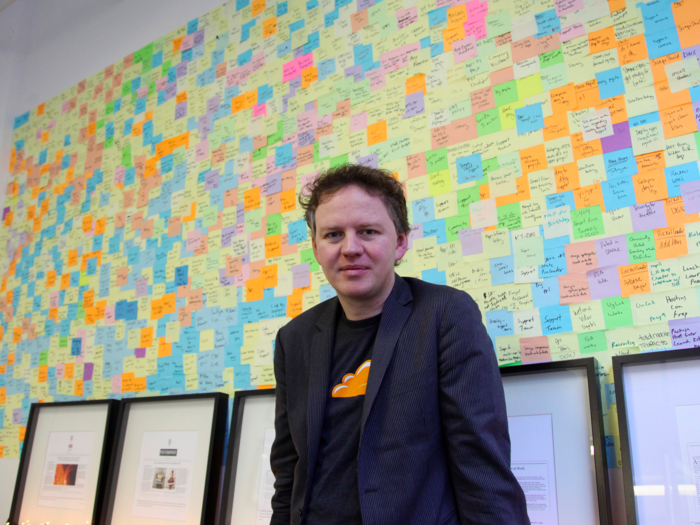
Company name: CloudFlare
Headquarters: San Francisco
Funding to date: $182.05 million in 4 rounds
CloudFlare is a web performance and security company that serves as a “digital bouncer” for millions of websites around the world.
Its technology filters the web traffic before it reaches its customers’ websites, and sends it on the most efficient route to help websites run faster. The company claims its service handles nearly 5% of the entire web traffic.
CloudFlare started out by serving mostly small and medium sized businesses, but now it’s moving up to the larger enterprise market, signing up the likes of Goldman Sachs, Salesforce, and the US State Department.
Unlike most fast-growth startups, CloudFlare says it’s already profitable while on pace to hit $100 million in annual revenue run rate.
Apttus: Simplifying the sales quoting process

Company name: Apttus
Headquarters: San Mateo, CA
Funding to date: $108 million in 5 rounds
Apttus is one of the leaders in the quote-to-cash market, a growing area that simplifies the sales process by automatically putting together the right product offerings and contract terms, while also taking care of all the paperwork in between.
It’s become a crucial part of enterprise sales because it makes the complex sales procedure of enterprise software much easier.
In fact, Apttus previously said it expects to have a $120 million revenue run rate by the end of 2015 (meaning $120 million worth of revenue under contract).
Its latest round of funding made it one of the $1 billion “unicorn” startups. Some of the big enterprise companies like GE, HP, and Salesforce are all Apttus customers.
Stripe: The invisible company powering online payments

Company name: Stripe
Headquarters: San Francisco
Funding to date: $280 million in 7 rounds
Stripe’s software makes it super easy for websites or apps to accept payments in almost any kind of method, including credit cards, bitcoin, and Apple Pay.
It can be easily slipped into many online services or apps, which is why it’s sometimes called the “invisible company powering the online economy.”
Although Stripe doesn’t have a consumer app, you've used it if you’ve used Lyft, OpenTable, or SurveyMonkey, just to name a few.
From Y Combinator to Peter Thiel and Andreessen Horowitz, almost every hot Silicon Valley VC has made an investment in Stripe.
Gainsight: Letting businesses know their customers better
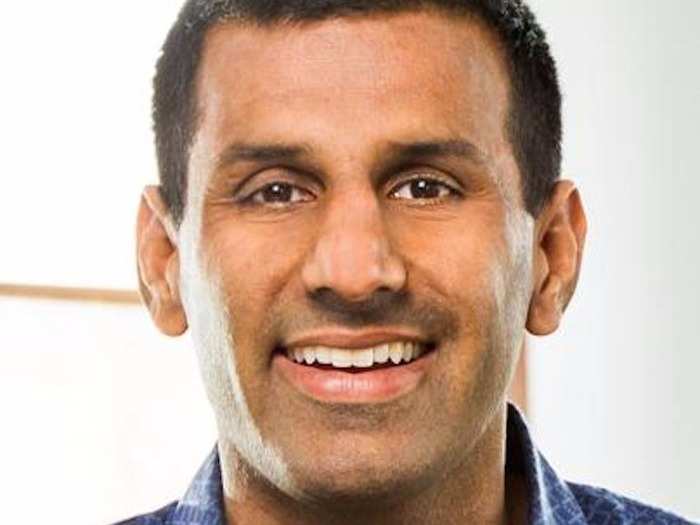
Company name: Gainsight
Headquarters: Redwood City, California
Funding to date: $104.25 million in 6 rounds
GainSight has won the respect of Silicon Valley investors by making a solution to help enterprises keep track of their customers — and help make sure they stay loyal.
Customers like HP, Workday, and Adobe all use Gainsight to manage their customer contracts, helping divisons like product development, sales, and marketing all better understand just who's buying their stuff.
In November 2015, Gainsight raised $50 million in new venture financing.
Adaptive Insights: Replacing Excel spreadsheets

Company name: Adaptive Insights
Headquarters: Palo Alto, California
Funding to date: $176.28 million in 7 rounds
Adaptive Insights is quickly rising through the ranks in the corporate performance management (CPM) market, where software is used to improve budgeting, forecasting, and other financial activities.
In a nutshell, it’s trying to replace a lot of the work Excel spreadsheets used to do in the past for finance people.
In June, Adaptive raised $75 million which reportedly put it in the ranks of the unicorn startups worth at least $1 billion.
DigitalOcean: winning against Amazon Web Services
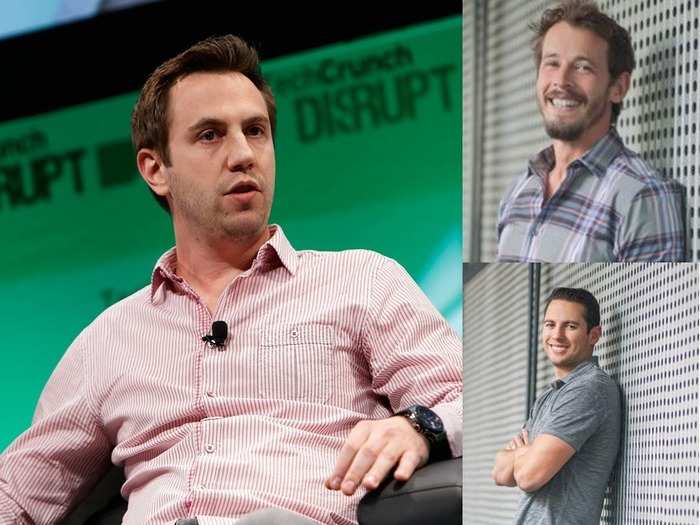
Company name: DigitalOcean
Headquarters: New York
Funding to date: $123 million in 3 rounds
DigitalOcean is a hot New York-based startup that is competing successfully with cloud computing juggernaut Amazon Web Services.
In 2015, DigitalOcean became the second largest hosting company in the world in terms of the number of websites it runs, more than 163,000, according to a website that tracks such stats, Netcraft. (No. 1 is Amazon.)
DigitalOcean raised $83 million in July.
The cofounders are a pair of brothers who met their third cofounder through an ad on Craigs List.
Tidemark: Making sense of mountains of data

Company name: Tidemark
Headquarters: Redwood City, California
Funding to date: $118.37 million in 8 rounds
Tidemark CEO Christian Gheorghe is a true Silicon Valley success story, arriving in the United States from Communist Romania in the early 1990s speaking no English with only $26 to his name. And now Tidemark is his fourth successful startup.
Tidemark lets users ask a question, any question, of their data, like "Why isn't this unit selling?" or "What if I hire six more salespeople?" and get answers on any of their devices.
In 2015, Tidemark raised another $25 million in new venture capital funding, indicating a lot of interest in the company and its future.
Sprinklr: Helping businesses with their social media

Company Name: Sprinklr
Headquarters: New York
Funding to date: $123.5 million in five rounds
Sprinklr helps big companies, like Virgin America and McDonald's, manage their social media presence across all the major networks.
In April 2015, Sprinklr raised $46 million in funding at a $1.17 billion valuation, officially making it a member of tech's unicorn startups.
It's an especially impressive achievement given that in April 2014, the company was reportedly valued at $520 million, meaning it doubled in twelve scant months.
AppAnnie: Taking app analytics to the next level

Company name: AppAnnie
Headquarters: San Francisco
Funding to date: $94 million in 5 rounds
AppAnnie may have a funny name but the company’s all business when it comes to app analytics.
Its service is one of the most widely used platforms for app developers, with 400,000 app developers from 60 countries using it. In some ways, App Annie has become the de facto standard for tracking app usage.
AppAnnie's global success may also have something to do with its diverse background. Its CEO Bertrand Schmitt is French, the company got started in China, before moving its headquarters to San Francisco.
The company still has a big engineering staff in China, while it has offices spread around 11 different countries now.
Tintri: Making storage faster for big enterprises

Company name: Tintri
Headquarters: Mountain View, California
Funding to date: $260 million in 6 rounds
Tintri's claim to fame is building a "storage appliance," a special piece of computer storage equipment that big enterprises install in their data centers to make their VMware or Red Hat servers run faster.
Customers like GE, Toyota, and NASA have turned to Tintri to improve their performance at large scales.
And this year, Tintri raised a sizable $125 million in venture capital financing to keep the good times coming.
Udacity: Helping anyone become a programmer

Company name: Udacity
Headquarters: Mountain View, California
Funding to date: $160 million in 4 rounds
The demand for programmers has never been higher.
That's why Udacity, a startup that says it's reinventing the university experience, offers a series of "nanodegrees" — online educational programs designed by tech titans like Google and Facebook, with an eye towards getting students ready for a real-world career in programming.
In November 2015, Udacity raised $105 million, which just goes to show you the demand. It hasn't stopped CEO (and ex-Google exec) Sebastian Thrun from trying to drive an Uber in his spare time, though.
Bracket: helps enterprises use multiple clouds

Company name: Bracket Computing
Headquarters: Sunnyvale, California
Funding to date: $131.7 million in 3 rounds
Bracket Computing spent three years in stealth before it launched about a year ago, racking up about $85 million in funding and then landing over $46 million in October.
Bracket offers software that lets enterprises securely run apps and data on multiple clouds, with a minimum of management hassles.
Enterprises are racing to ditch their data centers and use more clouds and there are a lot of clouds to choose from. Some want to mix and match and Bracket helps them do it.
Before starting Bracket, CEO cofounder Tom Gillis was the GM of the Security Technology Group at Cisco.
Qumulo: bringing big data under control

Company name: Qumulo
Headquarters: Seattle
Funding to date: $66.8 million in 3 rounds
Peter Godman, the CEO cofounder of Qumulo, was a top engineer at Isilon, a storage company bought by EMC in 2010 for $2.25 billion. Cofounder Neal Fachan (Qumolo's lead engineer) was also at Isilon and then did a stint at Amazon Web Services working on Amazon's database service.
The two are taking on storage again with this startup, creating software for the big-data craze that helps companies make sure their data isn't too big, and is efficiently managed.
The instant it came out of stealth last spring, it raised $40 million from Kleiner Perkins.
Hedvig: Famous Facebook database inventor taking on storage

Company name: Hedvig
Headquarters: Santa Clara, Californa
Funding to date: $30.5 million in 3 rounds
While he was an engineer at Facebook, Avinash Lakshman created Apache Cassandra, a "big data" database originally built to handle Facebook’s Inbox Search feature.
Facebook gave Cassandra away as a free and open-source software project and it's now a very popular database used by oodles of companies.
Lakshman went on to found Hedvig, which offers software that makes all of a company's computer storage systems act like one really big, really fast hard disk.
Like Cassandra, Hedvig also runs on ordinary, low-cost x86-based servers.
Cumulus Networks: changing the computer network industry

Company name: Cumulus Networks
Headquarters: Mountain View, California
Funding to date: $51 million in 2 rounds
Cumulus Networks makes software for building corporate networks in the data center and is part of a huge new trend called "software defined networking" that's changing how companies build networks.
There are a lot of players in this market. Cumulus stands out because it was founded by former Cisco engineering fellow JR Rivers and because one day Dell CEO Michael Dell called him up and wanted to partner with him.
Rivers struck a similar deal with HP earlier this year, and he became a key partner in Facebook's plans to become a giant in the network gear industry, too.
CrowdStrike: Providing businesses much smarter security

Company name: CrowdStrike
Headquarters: Irvine, California
Funding to date: $156 million in 4 rounds
Founded in 2011 by a pair of ex-McAfee execs, CrowdStrike is designed to provide "five-second visibility" into a company's cybersecurity. That's a much harder problem to solve than one might think, since attacks can occur in the blink of an eye.
In a post-Sony hack world, that kind of service is immensely valuable to just about any business.
That's why CrowdStrike has won over customers in telecommunications, the oil industry, and financial services, among others.
In fact, the opportunity is so big, that Google Capital led a $100 million investment in CrowdStrike in the summer of 2015.
6sense: predicting who wants to buy your products with amazing accuracy

Company name: 6sense
Headquarters: San Francisco
Funding to date: $32 million in 3 rounds
6sense was founded in 2013 and grew out of CEO Amanda Kahlow's previous a sales consulting company. 6sense offers what's known as "predictive analysis" that helps sales people find hot prospects.
It analyzes what Kahlow calls the "B2B internet" to find people who are researching products and exhibiting buying behavior, people who are not already in the vendor's database.
It works surprisingly well, so much so that it's landed customers like Cisco, NetApp, VMware, NetSuite, Lenovo, ADP, Blue Jeans Network, and earlier this year it also nabbed financial backing from Salesforce.
Confluent: big data decisions in real time

Company name: Confluent
Headquarters: Mountain View, California
Funding to date: $30.9 million in 2 rounds
When LinkedIn wanted to do a big data project, reading all the stuff it was gathering on its networks and using that data to make decisions in real time, a team of its engineers invented the tech to do that.
They released it as a open source project called Kafka, which quickly became a popular technology used by many big internet companies: Yahoo, Spotify, Airbnb, and many others.
Those engineers left LinkedIn to launch Confluent which provides a commercial version of Kafka. And Kafka just got a big vote of support from IBM, which added support for Kafka to IBM's app-hosting cloud, BlueMix.
Interana: doing for data what Facebook did for friendships
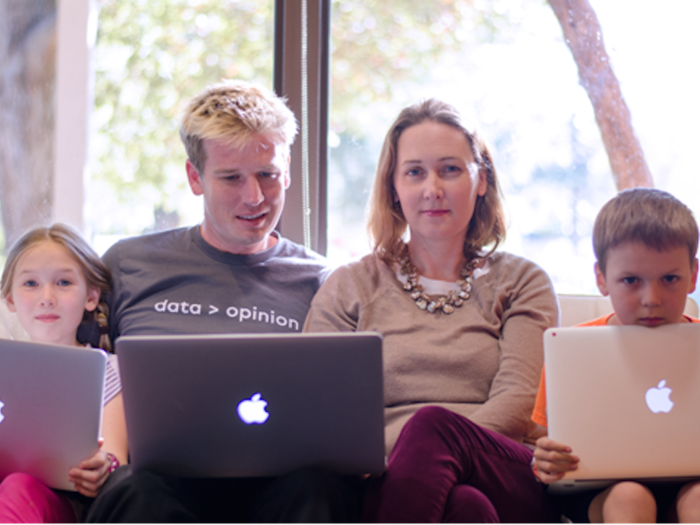
Company name: Interana
Headquarters: Menlo Park, California
Funding to date: $28.2 million in 2 rounds
Interana was founded by two former Facebookers who created some of Facebook's most popular data-analysis tools, Bobby Johnson and Lior Abraham. They are famous in the big-data world for creating the open-source tools Scribe and Haystack.
With this startup, their mission is to do for every enterprise what Facebook did for friendships: analyze billions of events in seconds to bring you the relevant info.
They raised $20 million at the start of 2015 and by the end made a name for themselves by landing Tinder and Microsoft Bing as customers.
The startup is also a family affair. Johnson's wife, Ann Johnson, a former electrical engineer at Intel, is CEO.
Twillo: The secret API powering app communications
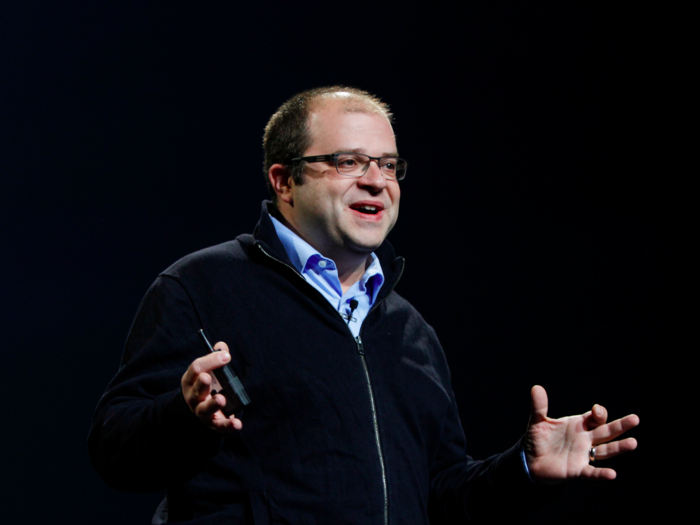
Company name: Twilio
Headquarters: San Francisco
Funding to date: $233.7 million in 6 rounds
If you’ve ever used Uber before, chances are you’ve used Twilio’s service. Same goes for apps like Lyft, Airbnb, and Match.com.
That's because these apps are plugging into Twilio’s service that helps provide communications features like text messages, phone calls, video chat. So the Uber text message you get is powered by Twilio's service.
Twilio has become a top choice for developers looking to add communications features to their apps. More than 700,000 developers have used Twilio’s platform so far, the company says.
MixPanel: Finding engagement metrics

Company name: Mixpanel
Headquarters: San Francisco
Funding to date: $77.02 million in 5 rounds
Mixpanel is a web and mobile usage analytics platform that helps companies really understand how people are using their apps. It can help show what's driving things like Facebook “likes” or the rise of a particular filter on Instagram.
It recently added a new layer of service: predictive analytics, to help companies and developers make decisions about their apps.
Over the past 3 years, the company grew from just 27 employees to over 230.
Now it has over 3,500 paying customers, including startups and large enterprises like American Express and NBC Universal.
Payoneer: international payments for small businesses made easy

Company name: Payoneer
Headquarters: New York
Funding to date: $90 million in 8 rounds
For small and mid-sized businesses that hire workers and contractors overseas, Payoneer solves a big problem. It lets them make and receive cross-border payments in other currencies.
Payoneer has racked up a user base of millions of businesses and professionals in more than 200 countries, it says.
Payoneer was founded in Israel but now names its New York office as its headquarters.
It's raised $90 million, including a new $50 million round in August (a huge sum by Israeli startup standards), and it employs 500 people worldwide.
Stack Exchange: Where the experts go for help

Company name: Stack Exchange
Headquarters: New York, NY
Funding to date: $68 million in four rounds
Stack Exchange, founded in 2008, has grown from its modest roots as a question-and-answer site for programmers into a network that provides expert help and advice to over 26 million programmers every month, at all skill levels.
As software plays an increasingly crucial role in our lives, there's a huge market for those who help programmers help themselves.
In 2015, Stack Exchange raised a $40 million round of funding, led by famed venture capital house Andreessen Horowitz with participation from Amazon.com billionaire Jeff Bezos' venture arm Bezos Expeditions.
SimilarWeb
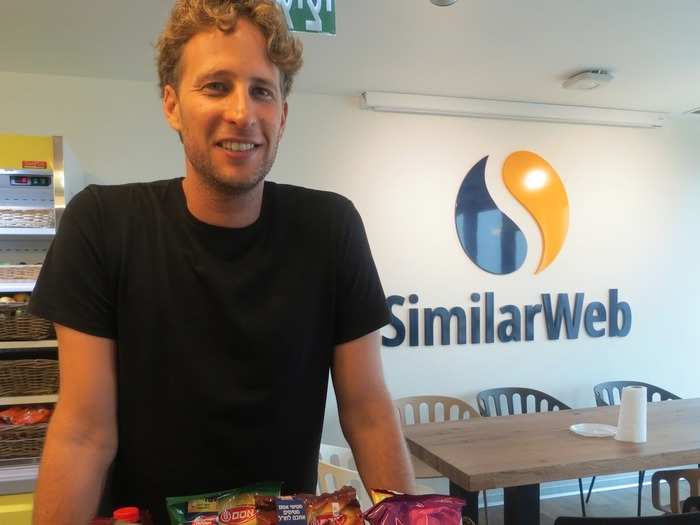
Company name: SimilarWeb
Headquarters: Tel Aviv
Funding to date: $65 million in 7 rounds
SimilarWeb seemed to spring out of nowhere a couple of years ago to become a star in the web and mobile app analysis world.
The company has been profitable almost from the get-go, CEO cofounder Or Offer tells Business Insider.
It has raised more than $65 million, all from long-term strategic investors including British billionaire David Alliance and Africa's huge internet investment conglomerate Naspers. And, although Offer hasn't publicly discussed the company's valuation, it is considered one of Israel's unicorns.
In the past year, SimilarWeb grew from 60 employees to 200 and is hiring in New York and Israel like crazy, recruiting about 20 people a month, Offer says.
Mesosphere: bringing an operating system to data centers

Company name: Mesosphere
Headquarters: San Francisco
Funding to date: $48.75 million in 3 rounds
Mesosphere offers what it calls a Data Center Operating System (DCOS). It's a commercial version of an increasingly popular free-and-open source project called Mesos that's used by developers.
Mesosphere founder Ben Hindman created Mesos while at UC Berkley. Hindman and the other Mesosphere founders brought Mesos to Twitter. Then co-founder Florian Leibert, who previously worked at Twitter, brought it to Airbnb.
It's one of the fastest-growing data center startups of 2015, and is doing so well, it reportedly rejected a $150 million acquisition offer by Microsoft.
HackerOne: The neighborhood watch for software

Company Name: HackerOne
Headquarters: San Francisco
Funding to date: $34 million in two rounds
HackerOne takes an unconventional approach to software security: It provides cash rewards to hackers who find security vulnerabilities in its clients' software.
Since its founding in 2012, HackerOne says it's paid out $5 million in bounties to over 2,000 hackers.
It counts tech giants like Twitter, Adobe, and Yahoo as customers. And recently, ex-HP Enterprise cloud executive Marten Mickos signed on as CEO of HackerOne to lead the company forward.
Realm
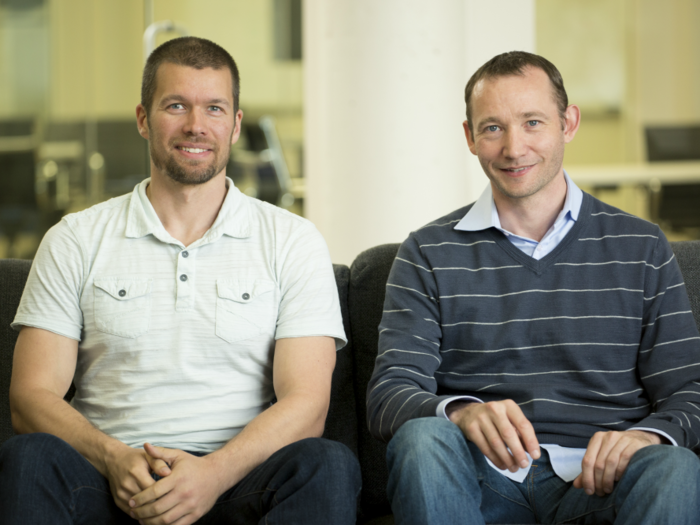
Company name: Realm
Headquarters: San Francisco
Funding to date: $29 million in 3 rounds
Y Combinator grad Realm launched a database for mobile apps not quite a year and a half ago. And developers went instantly gaga for it.
In the first few months of its first year, it was running on 100 million devices. By its one-year anniversary, it was being used on 500 million.
Realm was chosen by developers writing some of the world's most popular mobile apps like Pinterest, Groupon, and the BBC, each with millions of users.
The cofounders, Alexander Stigsen and Bjarne Christiansen, are childhood friends who dreamed up Realm when they both worked at Nokia.
CoreOS: a powerful competitor to Docker

Company name: CoreOS
Headquarters: San Francisco
Funding to date: $20 million in 4 Rounds
CoreOS used to be one of Docker's closest partners. But when it didn't like the direction Docker was going, it launched its own competitor. And in so doing, helped spur an entire new market called "containers."
CoreOS was actually on the Valley's radar before its feud with Docker. CoreOS makes a super-lightweight version of the free Linux operating system that works like the custom operating system Google built for itself. (Google Ventures is one of its VCs.)
It was founded by Alex Polvi who sold his first company to Rackspace for about $30 million when he was 25.
Between its OS and its container, CoreOS has been gathering powerful partners, including Google, VMware, and Red Hat.
AtScale: making big data easier to use

Company name: AtScale
Headquarters: San Mateo, California
Funding to date: $9 million in 2 rounds
Former Yahoo-er and serial startup founder Dave Mariani came back in 2015 with a new company, AtScale.
Although AtScale hasn't yet raised a boatload of VC cash, its backers are extremely prominent including Yahoo founder Jerry Yang and Cloudera cofounder Amr Awadallah.
AtScale works with a big data tech called Hadoop, which is a popular, low-cost way of storing lots of data.
AtScale is an engine that slips almost invisibly into Hadoop and then easily let's business managers use their favorite analysis tools like Excel, Tableau Software, Microstrategy, with the data stored in Hadoop.
That is such a hard problem to solve, that as Mariani showed AtScale's tech to people to get their feedback, they all wanted to invest or be involved.
GitLab: Helping programmers work together
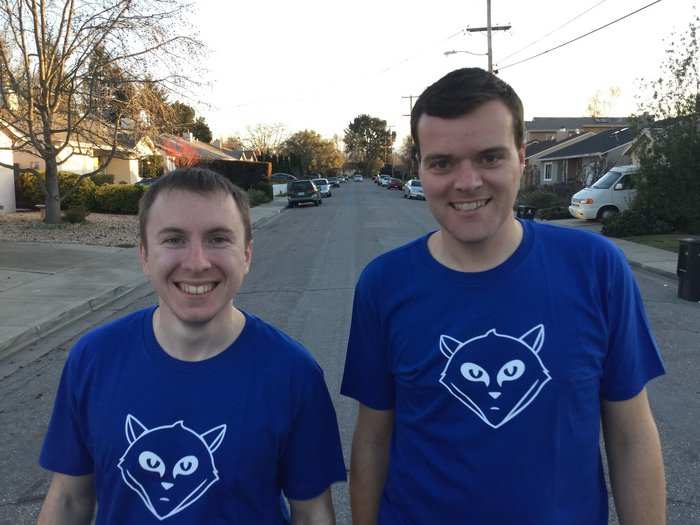
Company Name: GitLab
Headquarters: San Francisco
Funding to date: $7.32 million in three rounds
For all of GitHub's massive success, it's not perfect for everybody.
That's why in 2011, a Dutch programmer named Dmitriy Zaporozhets created a code management tool called "GitLab," intended to solve his own problems with existing options.
Figuring someone else might find it useful, he released the source code for GitLab to the Internet for free. In 2013, after GitLab built a following in the free software community, Zaporozhets and now-CEO Sytse "Sid" Sijbrandij teamed up to turn GitLab into a full-time business.
Fast forward to today, and GitLab has become the code repository of choice for several of the Fortune 500.
It's won fans in large enterprises by making its software a little friendlier to the IT department with beefed up security and management controls.
Popular Right Now
Popular Keywords
Advertisement